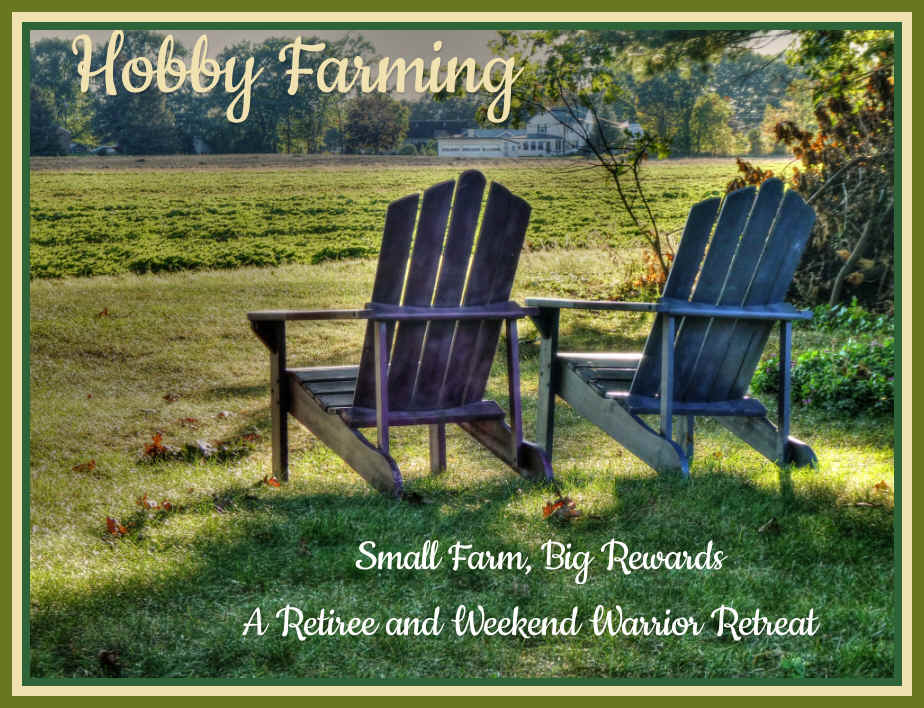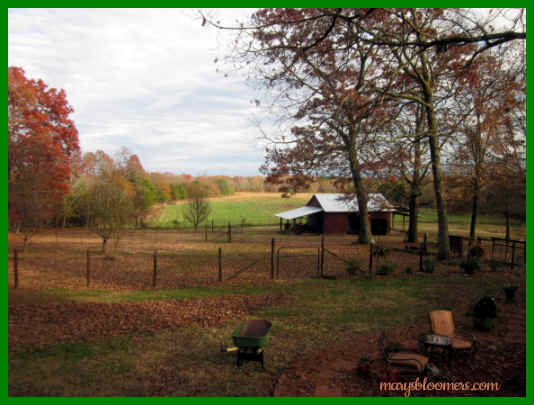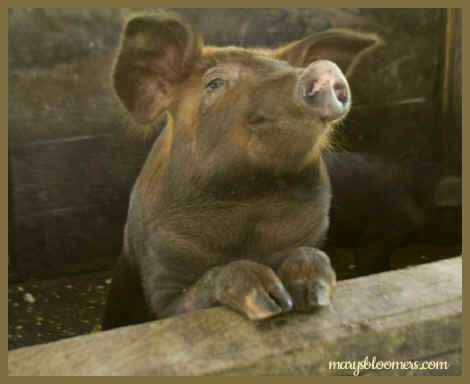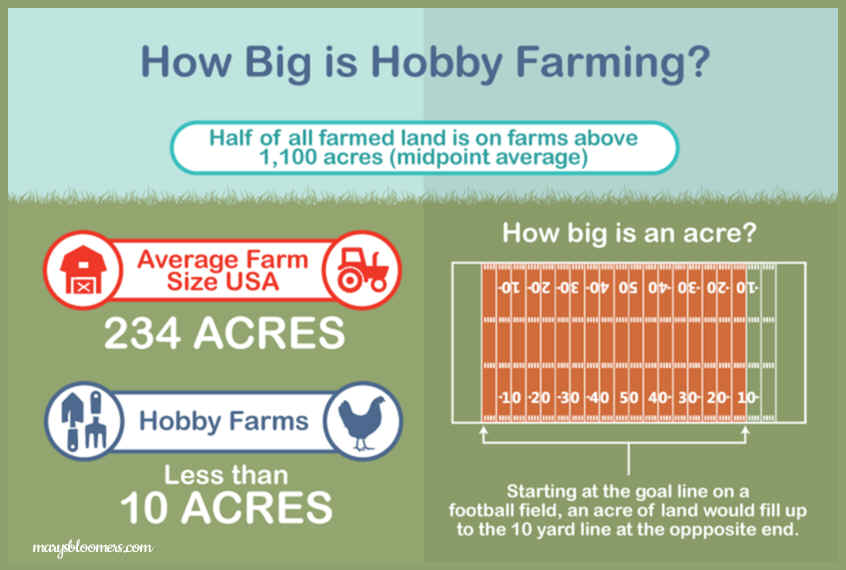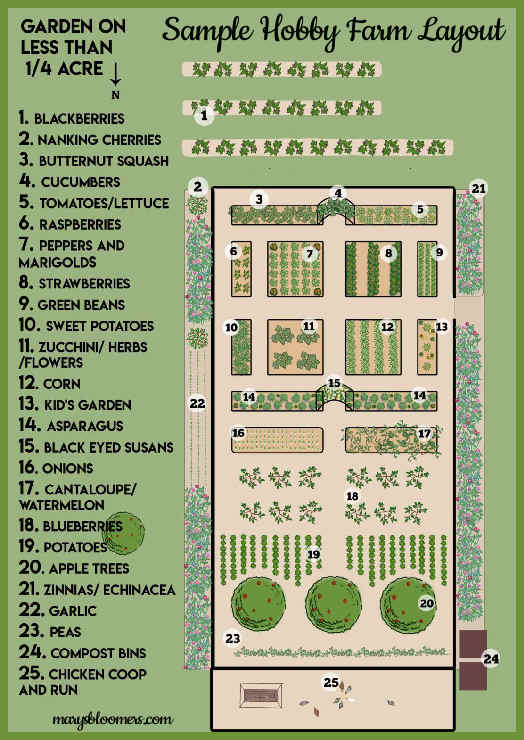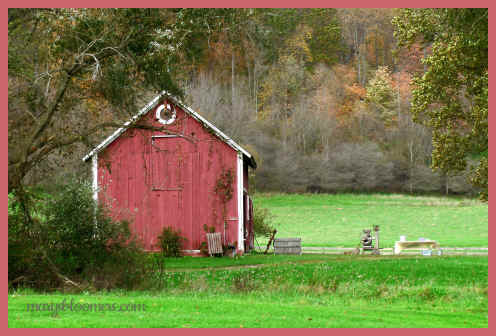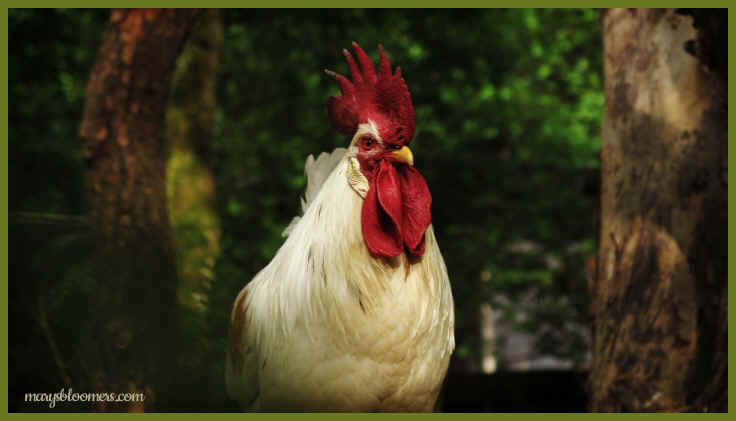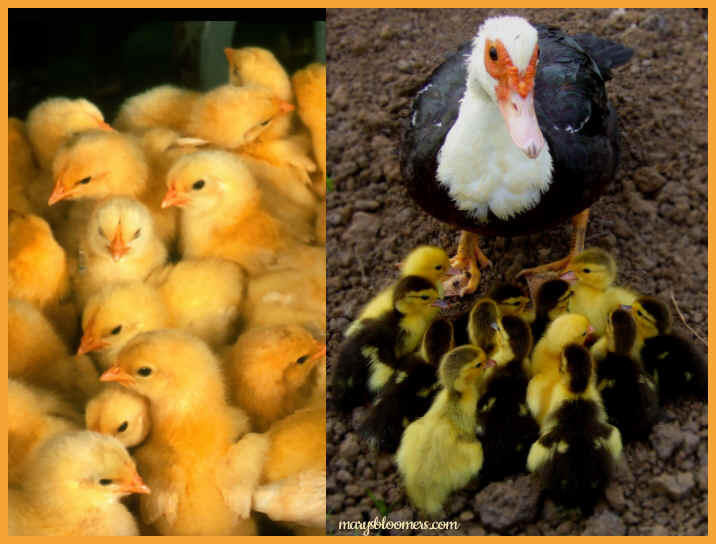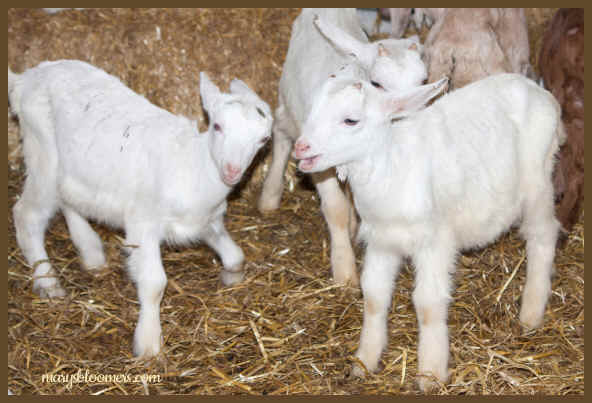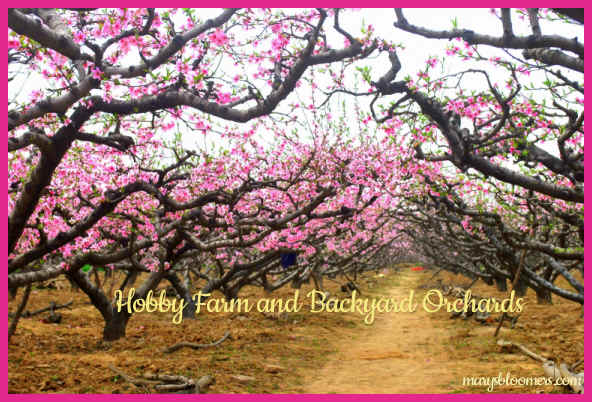
Visit the City of Pittsburgh Garden and Farm Resources InfoHub Fellow-Pittsburghers, click here to download a .pdf of the City of Pittsburgh's Urban Agriculture policy.
This article is about having a dream for a small "hobby farm", farmstead, or farmette, and one that is not a business endeavor. Although using it as a small business is very desirable, if you don't have to deal with a lot of equipment, ordinances and taxes. It's not about intensive homesteading for total self-sustainability. That will be another subject to watch for on this site. And it's not specifically about urban farming in your apartment, on the terrace, in a courtyard, or under grow lights. I will cover those in-depth as special design themes. This IS about designing or running a A Real Farm as a hobby, or a weekend warrior endeavor, but not a commercial enterprise. It's about fulfilling your dream of a joyous retreat away from all that irks you. If you live in a city, have a backyard, or a suburban getaway, these are perfect candidates for a hobby farm. The hobby farm I describe is not an essential part of your existence, or absolutely necessary for your livelihood or physical well-being. Anyone can do it, and they do it for different reasons. Hobby farmers can be retirees who finally have the time to pursue an agricultural hobby. It might be young folks who were gifted a piece of property, and would like to try their hand at growing food or raising animals. Would-be hobby farmers could be anyone who has the time to devote to their life-long passion of gardening food or flowers, would like raising animals, or would love to experience running a small-scale farm. Whoever you are, and whatever the passion, mini and backyard farming is a worthwhile endeavor. Since it's a hobby, your life won't be consumed by investing and depending on it to produce for market or for your existence. A peaceful farmer's life can be achieved on a small scale. If it doesn't succeed as a microfarm, it will always succeed as your garden. This will all sound like a difficult
endeavor, not worth all the possible trouble and hoops to jump through
to get there.
I'm talking about hobby farming, which is effectively a large, and somtimes ornamental, urban or suburban or rural vegetable, flower or herb farm, accompanied by a few optional farm animals. As pets, in my case, not necessarily for food. The hobby farm can contain a fair amount of ornamental objects. Historically, most folks settling the western U.S., out in the big wild country, lived on the outskirts of a town, on big plots of land with food and animals on it. Not all of them sold what they farmed, but many had to, in order to eat and make a living. Some property owners had a farmhouse, and homesteaded only to be totally self-sufficient. I see an urban, productive, less labor-intensive, and much more decorative version of the working farm on little more than a postage stamp-sized property. A backyard food farm on steroids. Homesteaders are often on a tight budget, have families to feed, and spend as little money as possible on investing in their self-sustaining farm. Sadly, it's initially quite expensive to reach a goal of total sustainability. Hobby farmers are more inclined to spend only if they want or need to, spend on ornamentals, add to their specialty crops, or to hire a professional or garden handy-person to help with chores they can't manage themselves. A hobby farmer is usually not concerned with getting back their initial investment. Once the design is done, and the plants installed, decorative items in place, maintenance is done when it needs to be to keep up the look and function of the mini-farm. Additions are made that are generally ornamental or subject to an owner's desire, not items needed for the farm to function. As an example, I would raise chickens. Either to collect and breed special types as a hobby, or to focus on particularly pretty and talented egg-laying types, as well as food for the pantry. That's A Hobby. It can be a mini food farm for yourself and your family, or even a cut flower or plant farm. Just for your satisfaction and enjoyment, whether to study horticulture and botany, or to preserve and share your crops with friends and neighbors. Maybe sell fresh eggs or herbs in the neighborhood. If you would like to get into the commercial farming world, there are thousands of informative articles and books to help you.
My Wishful Thinking Mini-Farm would grow tons of vegetables that I use and preserve for winter, utilizing a lot of old-fashioned methods with old-fashioned utensils and tools. I've already started a mini-orchard with dwarf fruit trees in big pots, I'd have lots more flowers and herbs, a few laying hens, a goat to eat the grass and weeds, a horse if I had room, and lots and lots of companion dogs. Maybe even a butterfly and pollinator "farm" included within, that pollinates the plants and looks amazing. I would consider selling seasonal flowers or crops at farmers markets or wheel around a Mary's Bloomers Mobile Farm Stand. But as far as the tax code and zoning commission is concerned, I wouldn't be classified as a business at all. Of course, that means no tax deductions for running a one-farmer ornamental farm. I wouldn't raise animals for my own food. Because there's no way I'd kill and eat a pet farm animal that I certainly would have named.
The Urban Hobby Farm These are very small hobby farms, usually under a third of an acre, where backyard space is limited. This hobby farmer will have a big, successful garden, can create compost, and consider being a parent to honeybees and chickens. This type of farm is relaxed, and works well with a busy schedule, and is more relaxed. Almost everyone can find time for this small hobby garden in their busy schedules. If you are an urban stay-at-home farmer, you will do well with small livestock that needs daily care. Farming In Suburbia? If urbanites can do it on a postage stamp, what's stopping you? You can have an awesomely productive and ornamental hobby farm, given enough space and time. I've seen some big, beautiful backyard food and flower gardens in the suburbs that qualify for the designation of Hobby Farm. You Can Do It. If you're not a slave to Housing Development Covenant Nazis. Some developments are jumping on the sustainability bandwagon, and they allow, and even encourage, food gardens. But i doubt there are many forward-thinking associations that will allow you to have chickens or a big food garden where (gasp!!) they might be seen. You might want to purchase a little piece of unadulterated green earth to pursue your dream on weekends. But, put plainly, if you have no individual freedom or power because your soul is owned by a housing development's HOA, which you knowingly agreed to when you purchased your property, there are covenants with guidelines that would not permit you to so much as hang a picture of a farm, let alone allow you to work one. Always check with the powers that be, before following that dream. Unless you're unhampered by such things.
Le Farmette Much is made of designer terms used much too often, e.g.,"farmette" and "gentleman's farm". Farms don't need dressing up or gentrification. The mini-food or flower farm I described, is not glorified in the flowery-talking and romantic way it is described in real estate listings. It's both practical and pretty, feeds you, pleases your eye, and you farm it yourself. You grow it just as big as you can handle all by yourself, without necessarily hiring folks and investing in farm machinery. A pretty, bountiful, small Hobby Farm. But, for the sake of showing off my French, I'll use the term "farmette. Not much difference in hobby farming capabilities, except that you would have a lot more room and options. And you can speak it in French. A farmette is really a full-sized hobby farm of a pretty decent size, but much more petite than a full sized farm. It's usually 5-50 acres, and a full-sized hobby farm is popular. It's one that you can comfortably, and probably legally, add small livestock to, depending upon the amount of grassland and feeding and housing capabilities. Farmettes are large enough to grow fruit in orchards with full size trees (i prefer dwarfs no matter what size the farm is), and you can grow a large field of herbs, and flowers for cutting, for yourself or for sale, and you can produce plenty of your own fertilizer courtesy of happy, in-residence livestock. At first, any hobby
farm is easily planned if you
already have a vegetable garden, by just expanding that plan. A lot. About Those Chickens and Roosters...
Chicken friends are hardy, easy to take care of, and don't cost much to set up. A small flock can easily produce enough eggs to meet all of a family's egg requirements, including eggs for baking and cooking. As an urban dweller, I am limited by ordinance as to how many chickens I can keep. Chicken coops have a specific zoning and building regulations that I must adhere to before chickens are moved in. I would want them to be free-range and cage-free. So the humans living around me will need to be considered. I live near someone who obviously has a flock of chickens. The cackling noises for hours, from blocks away, drives me to distraction. They won't sound any better in my own backyard. And don't get me started on roosters.
The best things about having chickens? -
Hens will eat leftover food scraps and put out great
fertilizer for all of your gardens. All while on the move. Skip that can
under your sink, and the compost pile amendments. You've Got Cackling
Composters. Whether for eggs, as composters or companions, they're not a bad addition to your Hobby Farm. The obvious downside for the city or small-space dweller is keeping your chickens safe from the family pets, and every nocturnal and roaming predator in your neighborhood. Including cats. After a year, the egg production of hens starts to slow down, and eventually they’ll stop laying altogether. That means keeping the hens on as pets (because I won't kill or eat them), or re-investing in more hens just to supply myself in fresh eggs. Not quite an economical endeavor, unless on a larger scale, or selling fresh eggs in the neighborhood. But still worthy of being a great hobby. Honeybees These are a snap to acquire in Pittsburgh, where you're permitted, and even encouraged, to keep honeybee hives if you have the required space between neighbors rules taken care of. I would like to, but don't really need to, get hive bees. My pollinator gardens draw hundreds of honeybees. It would look very cool to have one and welcome my neighbor bees, though. And it would help to pollinate my neighbors' gardens. Honey is the bonus. The honey from different neighborhoods might taste different from each other. That's because your bees dine on pollen from plants that are prevalent in those areas.
Why Goats? They're just so darned cute. And their milk tastes good. Cheese made with it can earn you money. I am a huge fan of goats that are kept on farms, not kept as pets. I've seen what happens when a headstrong goat decides to use the roof of your car for a dance floor. Or jump from around upon and from shed roofs. I have also seen the damages they can do if they escape. You would need a high fence (my, those critters can jump!) or keep them confined to an area somehow. Horned creatures have other considerations, as well. Goats are cute, hardy, useful animals that can clear land for you, mow the grass, and munch away weeds. On the other hand, they're not selective, and if not confined to a particular area, they will eat shrubs, small trees and valuable landscaping. Dairy goats produce an average of three quarts of milk per day, and it is quite healthy and tasty. You can learn to make goat cheese, one of the most popular cheeses for salads and cooking. Billy would save me a lot of money at the deli counter. But he might cost me more if I don't keep an eagle eye on his whereabouts and behavior. The Herbs Having studied, grown and eaten my fair share of culinary and healing herbs, I will have no trouble farming it. I would grow the common culinary and medicinal herbs, along with specialty international varieties of herbs that are used in the specialty dishes I enjoy. I would have special spots for Asian and Mediterranean herbs and veggies. There will also be a section for the other ingredients used my herbal tea medicinal and pure pleasure blends, including the flowers. My rose shrubs produce petals and rosehips go into my concoctions. The kitchen garden will be showcased on the patio beneath my kitchen, which is full of everyday fresh culinary herbs and greens.
I will admit that I have reached an age whereupon I have no intentions of waiting 5 years to have a bushel of fruit from trees. And i'm not likely to climb ladders at harvest time. After much study, I have begun my new adventure in small-space backyard and indoor orchards by growing some rock star dwarf fruit trees and shrubs in containers and pots. To me, dwarf is the way to go. So are potted trees. Full size fruit on dwarf tree stock, sometimes fruiting after one year. I am successful (so far) in growing Meyer lemon trees and fig trees indoors and out, and Persian Limes. They can be grown outdoors and indoors, look and smell beautiful, and are covered in blossoms that will hopefully become the 5 p.m. cocktail additions and culinary fruits for my jams and pies. The non-hardy are being grown in big pots through winter. I use grow lights if the weather is gloomy and natural light is dim from the windows. Check out the design for a compact backyard orchard to get ideas of how much fruit you can squeeze out of a teeny backyard. There is no reason not to grow these dwarf fruit trees in the ground, except for personal preference. I am fickle about where i use my trees, and i want to be able to move them if they need more space, are being harassed by critters, or as part of a theme design. I don't want to have to dig them up. I started with a small collection of 3-4 ft. tree stock, fruiting size, and fruit shrubs that are at least gallon size, or 2 ft.+ high. We will see how they do in the garden this year. I would definitely use more hardy dwarf fruit trees to create a mini-orchard on a future hobby farm. These trees begin to bear fruit in their second year, depending upon the initial planting size and health of the tree. Once your trees start to produce fruit, you’ll have a passive food source of fruits for the life of the trees, and with a minimum of labor. Basic maintenance, winter care and harvesting are your only concerns. Tree in pots are the best.... I can move my non-hardy dwarf trees or baby species indoors for winter easily. Or re-arrange and redecorate the outdoors with them in summer on a whim. You just need to do some basic maintenance and harvesting, and Mother Nature will take care of the rest. There are many dwarf fruit trees to choose from. Remember that you will get full-sized fruit from dwarf tree stock. I started out by choosing the hardy varieties that do not need to be brought indoors in the winter. So far, my mini orchard consists of the Dwarf Meyer Lemon, Persian Lime, Dwarf Mulberry trees, apricots, and cold-hardy fig trees. I learned to adore figs from my experience with Italian gardens.... I stick with self-fertile trees so that I don't need 2 to Tango. I choose trees that can also be pruned as short as I want them to be, without damaging the potential crop. I try to keep mine at about 6-8 ft. tall for ease of care and harvest. There aren't many citrus varieties that are hardy, or that can grow indoors without going into dormancy and losing all the leaves in my cold region, Zone 6, so I don't attempt to grow them. I already have established strawberry beds, and raspberry and blackberry plants. I will add more dwarf fruits plants in pots. New dwarf varieties are presented each year. You'll have no trouble finding them. Dwarfs average a maximum height of 8-10 feet, which makes them much easier to care for and to harvest and less is wasted. Also perfect for indoor gardening. They produce full size fruit, and do it faster than larger trees. If you plant 2-year-old dwarf fruit trees, you should begin to get some fruit the very same year, if cared for properly, and if disease and animals don't get to them. If you cater to your pollinators in the garden, they'll help to present you with a bumper crop every year. Be sure to save money and labor by purchasing your fruit tree stock from reputable plant and tree nurseries that grow these themselves. Avoid buying these at big box stores, home centers, grocery stores, hardware stores, and flea markets. I learned the hard way about the costs of poor quality fruit trees when you don't know who grew them, if they're truly the variety and pedigree you thought you bought, what they were sprayed with, whether GMO's were involved, or how they were propagated and taken care of.
 Think small at the beginning of your adventure in full size or hobby farm or farmette. -Have or set aside as
much space as you can on your property for your hobby. If you're lucky
enough to have another little piece of property to devote solely to your
hobby, congratulations! Put a barn on it and get digging. - Know your local ordinances, especially if the farm is in an urban, or highly populated area. If you're just running a hobby farm that grows food, it's easy to figure out how to best do that. If you are including animals, there's a whole lot more to consider, such as: Be sure to follow the rules about how you must care for your property (removing weeds or yard debris and keeping it neat and rodent-free), know which, if any, farm animals and pets are allowed on a residential property, and how you must care for those animals. For instance, I know I can keep a few chickens. I also know that there is a specific guideline for building a proper chicken coop, and it has to be approved by the city and ready to occupy before Foghorn Leghorn and Henny, Penny and Jenny move in. I also know that the noise they make may be an infringement upon my neighbors. Almost every neighborhood
has ordinances for noise, and that includes noise and disturbances of your
neighbors by animals. There are also city ordinances concerning odors
(from animals and from composting, etc), human health risk, and
controlling those animals. There are consequences for any destruction
caused by any animals you own, and city health rules are in place
concerning diseases, care, protection and well-being of animals, whether
they're called pets or domestic farm animals. It's expensive in many ways
not to be well-versed on those subjects. Hobby farms are truly best for your own personal use as a hobby, and the growth and consumption of produce and eggs should also be for your personal use and your family's and friends. Unless you are licensed as a commercial farm enterprise and food is offered to the public, and you're not declaring yourself just a hobby farm. Go for it if you'd like to sell your produce locally, after checking the rules. You'll have a following. My advice is to keep your little hobby farm as just that. A rewarding hobby that feeds many of your passions. Skip all the headaches of running a large commercial enterprise, unless you want to be a commercial farmer. Enjoy the good health, pride of space, and harvests reaped as a result of the hard work you've done in the production of your own food. Your hobby farm also feeds the soul with sunshine, birdsong, fragrances and flowers. You are much closer to, and more mindful of Nature. You really don't need much more than that. Recommended Reading Material
|
Article ©2020 Mary Hyland |
